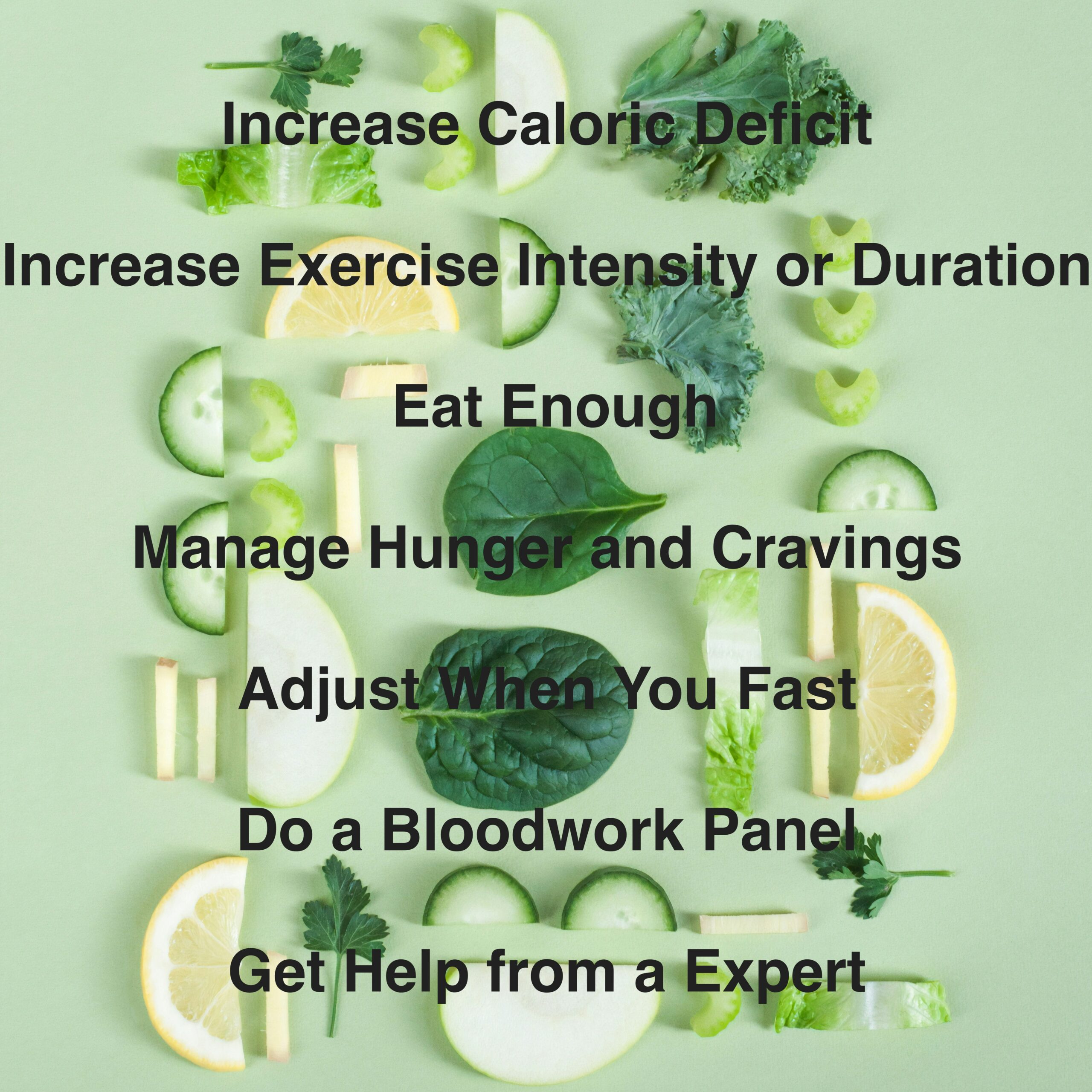What is Intermittent Fasting isn’t working for me? Whether your goal is to lose weight, boost energy, or address health concerns, intermittent fasting is a very powerful method. However, as we are humans, its effectiveness varies from person to person. I will cover in this article the reasons why intermittent fasting might not be working for you and I will offer solutions to help you navigate through potential challenges.
Why Isn’t Fasting Working for Me?
First let’s understand the potential reasons why fasting would not be working for you.
1. You’re Consuming Too Many Processed or Sugary Foods
The quality of your diet does matter. If your eating window is filled with processed or sugary foods, it can hinder the benefits of intermittent fasting right away. Work gradually to opt for more nutrient-dense, whole foods to support your health and fasting goals.
2. You’re Not Getting Enough Sleep
Sleep is absolutely crucial for your health and overall well-being. Sleep can significantly impact the success of intermittent fasting. Inadequate sleep disrupts hormonal balance, affecting metabolism and appetite regulation. Check out the masterclass series of Pr Matthew Walker, to learn how you can improve your sleep.
3. You’re Not Consuming Enough Nutrients During Your Eating Window
A balanced diet within your eating window is essential. Ensure you’re getting a variety of nutrients, including proteins, healthy fats, and carbohydrates, to support your body’s needs. Even more attention if you are an athlete.
4. You’re Consuming Too Many Calories During Your Eating Window
While intermittent fasting doesn’t prescribe calorie counting, overeating during the eating window can counteract your efforts. Be mindful of portion sizes and listen to your body’s hunger cues.
5. You’re Dehydrated
Hydration is key for overall health and can impact how you feel during fasting periods. Start each day waking up taking a big glass of water and ensure you’re drinking enough water throughout the day.
6. You’re Stressing Out Too Much
Stress can hinder the benefits of intermittent fasting. Practice stress-reducing techniques such as meditation, deep breathing, or engaging in activities you enjoy daily.
7. You’re Not Exercising Enough
Regular exercise complements intermittent fasting. Find a workout routine that suits your preferences and supports your fitness goals. Start gently and increase day by day your practice.
8. You’re Not Taking Enough Breaks Between Bouts of Fasting
Consistent and extended fasting without breaks may lead to burnout. Consider incorporating intermittent breaks between fasting periods to give your body time to recover.
9. You’re Not Eating Enough Protein
Protein is essential for muscle maintenance and overall health. Ensure you’re incorporating an adequate amount of protein into your eating window.
10. You’re Not Eating Enough Fiber
Fiber aids digestion and helps control hunger. Include fiber-rich foods like fruits, vegetables, and whole grains in your diet.
Potential Solutions When Intermittent Fasting Isn’t Working

Increase Your Caloric Deficit
If weight loss is your goal, create a sustainable caloric deficit within your eating window. Focus on nutrient-dense foods to support your energy needs.
Increase Your Exercise Intensity or Duration
Adjust your workout routine to align with your fitness goals. Increasing intensity or duration can enhance the benefits of intermittent fasting.
Eat Enough in Your Eating Window
Ensure your meals provide the necessary nutrients your body needs. A well-balanced diet within your eating window is crucial for success. You may need to supplement your diet.
Manage Hunger And Cravings
Explore strategies to manage hunger and cravings, such as staying hydrated, consuming satisfying meals, doing breathing exercice or journaling when hunger wave comes in.
Adjust When You Fast
Experiment with different fasting schedules to find what works best for you. Give a trial to shorter or longer fasting periods based on your lifestyle and preferences.
Get Help From a Qualified Expert
Consider seeking guidance from an intermittent fasting coach or a nutrition professional. Their expertise can provide personalized advice and address specific challenges you may be facing.
Do a Bloodwork Panel
You can do a complete bloodwork panel to help you understand better what your body is missing, you might need then to supplement your diet. Read here about the 10 best supplements while Intermittent Fasting.
What to Do When Intermittent Fasting Isn’t Working
In summary, the effectiveness of intermittent fasting is influenced by various factors. If you find yourself struggling, consider adjusting your approach. Experiment with different solutions, listen to your body, and be patient with the process. If challenges persist, seeking guidance from a fasting coach can provide valuable insights tailored to your individual needs.
Get Guidance While Intermittent Fasting
I am Celeste, French Fasting Online Coach here to help you make the most of Intermittent Fasting! Schedule a consultation today to discuss how I can help you succeed on your IF journey.
Sign up for a free 20-minute consultation using the link below.



